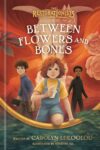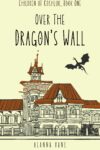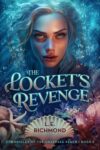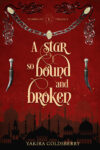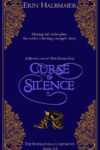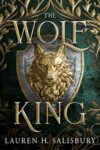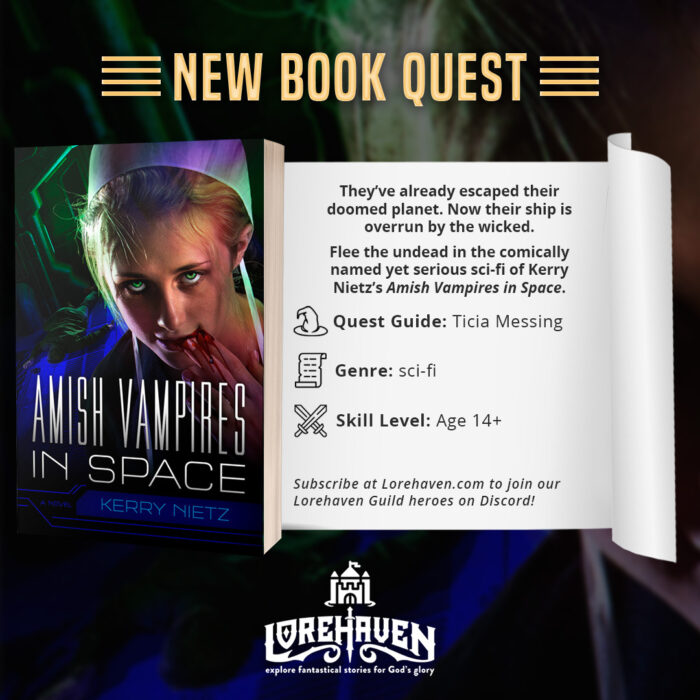Part Two: How To Bring Myths & Fairy Tales Back From The Dead & Into The Light
You will travel for a long time, holding your two torches. You must not stray from the path and you must not pick the flowers. You may ask for help. You will ask the sun for direction and you will ask the moon. (Shanoes, “How To Bring Someone Back From The Dead”)
What are your two torches, SF writer?
Your imagination. Your truth. One makes old things new. The other makes dead things revive.
Vivian Vande Velde took the old fairy tale of “Rumpelstiltzkin” and made a new thing in her story “Straw Into Gold.” (Find it in the collection titled TALES FROM THE BROTHERS GRIMM AND THE SISTERS WEIRD.) She added a kindly elf. She added a sense of humor. She kept the greedy royal and the straw that must be turned into gold or off with the head. But this story added something new from Vande Velde’s imagination: a happy ending that makes sense to a modern sensibility. Yes, an elf can walk between the particles of walls and stupid servants can’t get names right, but the miller’s daughter ends up taking her baby girl and leaving her forced and loveless marriage to the shallow, greedy king. She finds happiness with the generous, kind Rumpelstiltzkin, who sees the value of a girl-child and a destitute miller’s daughter, which is vaster than the worth of gold. This protagonist learned the lesson the original protagonist did not: No one can change straw into gold. Some things are just straw, and some things are gold. And sometimes you just have to know which is which.
In Scripture, straw is worthless and burns up. (That Bema Seat is HOT!) Gold is precious and can be refined, but not destroyed. It doesn’t burn up. A good, generous heart is gold and is precious. A greedy, vain one is straw, and has little worth.
I happen to prefer Vande Velde’s ending to the original, despite what some legalists might say about the whole marriage thing.
One could take a different tack: God can change straw to gold. That is a second torch proposition: a truth.
From that perspective, that starting point, we can develop a different variation of “Rumpelstiltzkin.” You can set it in the past, set it in the present, set it in the future, set it in an alternate reality or a fantasy or a sci-fi world, any world where shallow and vain people do, in fact, change due to…what?
What are the causes of such change from our believing perspective? Interaction with the virtuous? The movement of some eternal force into the heart? The hearing of strange, powerful words? That’s where your first torch, imagination, has to shine extra brightly. Anyone want to offer some ideas of how the avaricious king becomes a doting husband and father, unwilling to lose his child to the gold-spinning…what? Elf? Dwarf? Alien? Demon? Demi-god? Witch? Wizard? Elemental? Mad scientist? Alchemist?
Why is the gold needed? Why would a woman surrender her first-born? How does spiritual need manifest in this scenario, and is satisfied; and how do the moral questions that arise get answered in the drama (or comedy), so that we feel the second torch’s brilliance in our hearts when we reach the end?
“Perhaps you will have to make your way through thorns and brambles.
Perhaps the thorns will take out your eyes and you will not see anything at all. “
The fairy of Sleeping Beauty. The myth of Oedipus. Thorns and blindness. How do these converge?
Suppose you wanted to retell not just a fairy tale or a myth, but combine them and tell a hybrid tale, a chimera story?
What do they have in common? What do they teach?
In Sleeping Beauty, as I recall, the parents never seek to pacify the cursing fairy. Why? As a kid, that seemed the right thing to do. Say, “Sorry. We were afraid to invite you, but we were very rude not to.” Be nice to people who, when ticked off, can curse you, I say. The fairy was…bristly. Her pride got offended. Why did they not seek the remedy in apology, in redress of grievances of some sort ? No, they seek to bypass the consequence by ridding the kingdom of that which might harm the princess.
Oedipus attempts to avoid fulfilling a dreadful prophecy by leaving his city and family, rather than by doing what seems most logical to someone like me reading the tale: Never have sex at all, or at minimum not with anyone remotely older than you. Never raising your hand to kill anyone, especially anyone older than you. This would probably assure you don’t kill your dad and marry your mom, I’d think. But his solution is simply to think he can outwit fate by just..er…leaving his family.
We know they all failed. The princess pricks her finger. Oedipus does the nasty with mom and kills his pa.
So, the story could focus on a character who thinks his ability are greater than some prophecy, and rather than humbling himself to seek the advice of prophets and priests (or wise woman or oracle) or make atonement to an offended angel/divinity/sage/sorcerer.
All great tales have great lessons. Arachne’s pride led to her eventual spidery state. (Never mind that it seemed okay for Athena to be at least as proud and easily miffed. Greek gods and goddesses were not really terrific role models, what with all the fornicating and vengefulness.) Orpheus’ impatience and lack of trust lost him a second chance to regain his bride. The Witch Queen of the Snow White tale was so vain that it led to great evil actions and her downfall.
What does the Lord teach about pride? (Watch out! Fall ahead!) What do the gospels and epistles say about patience and trust in God’s promises? (Hades promised Orpheus could have Eurydice if he did not look back until he was clear of the underworld.) If Charm is deceitful and beauty vain…what has value? (Fear of the Lord, anyone?)
“Lead her out. Don’t look back…Give her one of your torches….Don’t worry if she doesn’t talk at first. Voices take a long time to come back.”
Orpheus only had one torch. You, believer-writer, have two: Imagination and truth. And you have one more: love of God. The third and brightest. Unlike Orpheus, you can bring the dead out into the light and make them breath again.
Eurydice was myth. Lazarus was history.
But we all yearn for resurrection. That’s a universal. We want to live.
What can you do to a myth, to a fairy tale, to make your SF story ring with the power of those archetypes and moral lessons? How can you make the relevant to the modern reader who, grown old and sarcastic and cynical, doesn’t believe in the tales of her youth, but who, deep down, wants to believe again in princes who will not be stopped by dangers until the princess is kissed and won, and in wives who will wear out one, two, three pairs of iron shoes searching the world for their lost husbands, undaunted until each holds her man again, liberating them all from painful enchantment?
We all want to be set free and we all want to be loved. More universals to consider.
Will you make Eurydice a chatterbox (instead of a silent spirit tugged along by her husband’s undying desire), one who kind of had a crush on Hades, so she’d really rather Orpheus just got on with his life, since it was “til death do us part, dear.” That’s a truth, too. Love can survive death, but marriage does not.
Find your voice. It’s yours. Look at your truths. Be guided by your love of the eternal. Those torches will illuminate for you the form YOUR tales must take.
I hope I got your imagination torch flaring. I hope you write a wonder tale/myth-based story with all your torches ablaze this week. (Unless you’re NaNo-ing, then wait til Dec. 1.)
Question for the coming weeks of this series: What myth inspired a novel by C.S. Lewis? How did he change it to write the truth he needed to tell? What fairy tale(s) are closely linked to this same myth? Ravens? What have ravens to do with anything?
Next Week: Part Three of How To Bring Myths & Fairy Tales Back From The Dead & Into The Light
Teaser: Do not throw stones at ravens. You may ask wolves for help, but you should not believe what they tell you. They do not think carefully. They do not think as we do.






